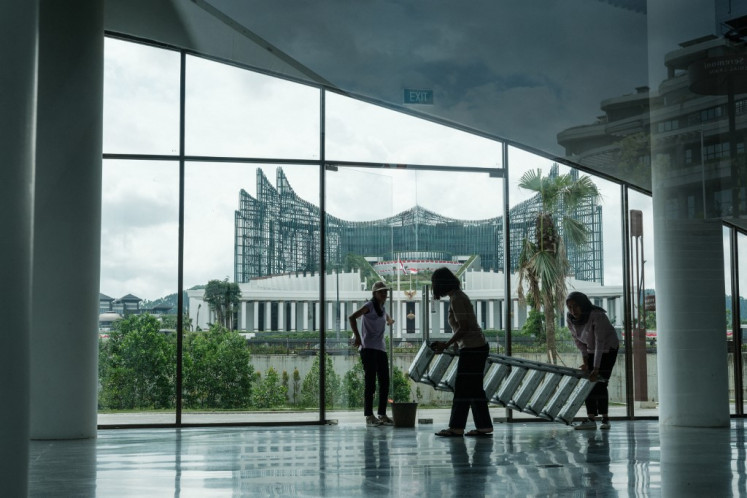Popular Reads
Top Results
Can't find what you're looking for?
View all search resultsPopular Reads
Top Results
Can't find what you're looking for?
View all search resultsChina manufacturing activity shrinks for fifth straight month in August
Change text size
Gift Premium Articles
to Anyone
C
hina's manufacturing activity shrank for a fifth straight month in August, an official survey showed on Sunday, suggesting producers are waiting for further clarity on a trade deal with the US while domestic demand remains sluggish.
The official purchasing managers' index (PMI) rose to 49.4 in August versus 49.3 in July, remaining below the 50-mark separating growth from contraction and missing a median forecast of 49.5 in a Reuters poll.
China's economy is confronting weakening exports due to US tariffs, a property sector downturn, rising job insecurity, heavily indebted local governments and extreme weather. These pressures threaten to derail Beijing's ambitious 2025 growth target of "around 5 percent," according to economists.
The non-manufacturing PMI index, which includes services and construction, expanded at a quicker pace, rising to 50.3 from 50.1 in August, according to the National Bureau of Statistics (NBS).
The NBS composite PMI of manufacturing and non-manufacturing was 50.5 in August, compared with 50.2 in July.
China's economic momentum has slowed in the third quarter due to persistently weak domestic demand and a cooling property market, said Zhiwei Zhang, president and chief economist at Pinpoint Asset Management.
"The macro outlook in the rest of the year largely depends on how long exports can stay strong and whether fiscal policy will become more supportive in Q4," Zhang said.
While July exports beat forecasts, the gain was supported by a low base and driven by a surge in shipments to Southeast Asia, as Chinese exporters scramble to grow market share there amid fears of losing access to the US, the world's top consumer market - a push some producers have called a "mad rat race."
Earlier this month, the US and China extended their tariff truce for another 90 days, locking in place levies of 30 percent on Chinese imports and 10 percent Chinese duties on US goods, but the uncertainty is eroding confidence on both sides of the Pacific.
Profits at China's industrial firms fell for a third straight month in July, official data showed on Wednesday, highlighting how businesses are also struggling with subdued demand and persistent factory-gate deflation at home, keeping the pressure on Beijing to roll out more stimulus.
Policymakers have ramped up consumer subsidies, but a prolonged property slump is still crimping spending, with real estate a key store of household wealth.
Households' reluctance to take out mortgages was reflected in July bank lending data, which unexpectedly contracted for the first time in 20 years.
And consumer spending could take a further hit if a recent ruling by China's top court banning firms and employees from skirting social insurance payments leads to job losses, with many companies and workers already struggling to make ends meet. Urban unemployment edged up to 5.2 percent in July from 5 percent in June.
The decision should support cash-strapped local authorities - deprived of land-sale revenue - in replenishing depleted pension coffers, as demands on public finances continue to grow. Extreme weather alone, for instance, has caused $2.2 billion of road damage since July 1.
Analysts polled by Reuters forecast the private sector RatingDog PMI to come in at 49.7, up from 49.5 a month prior. The data will be released on Monday.










